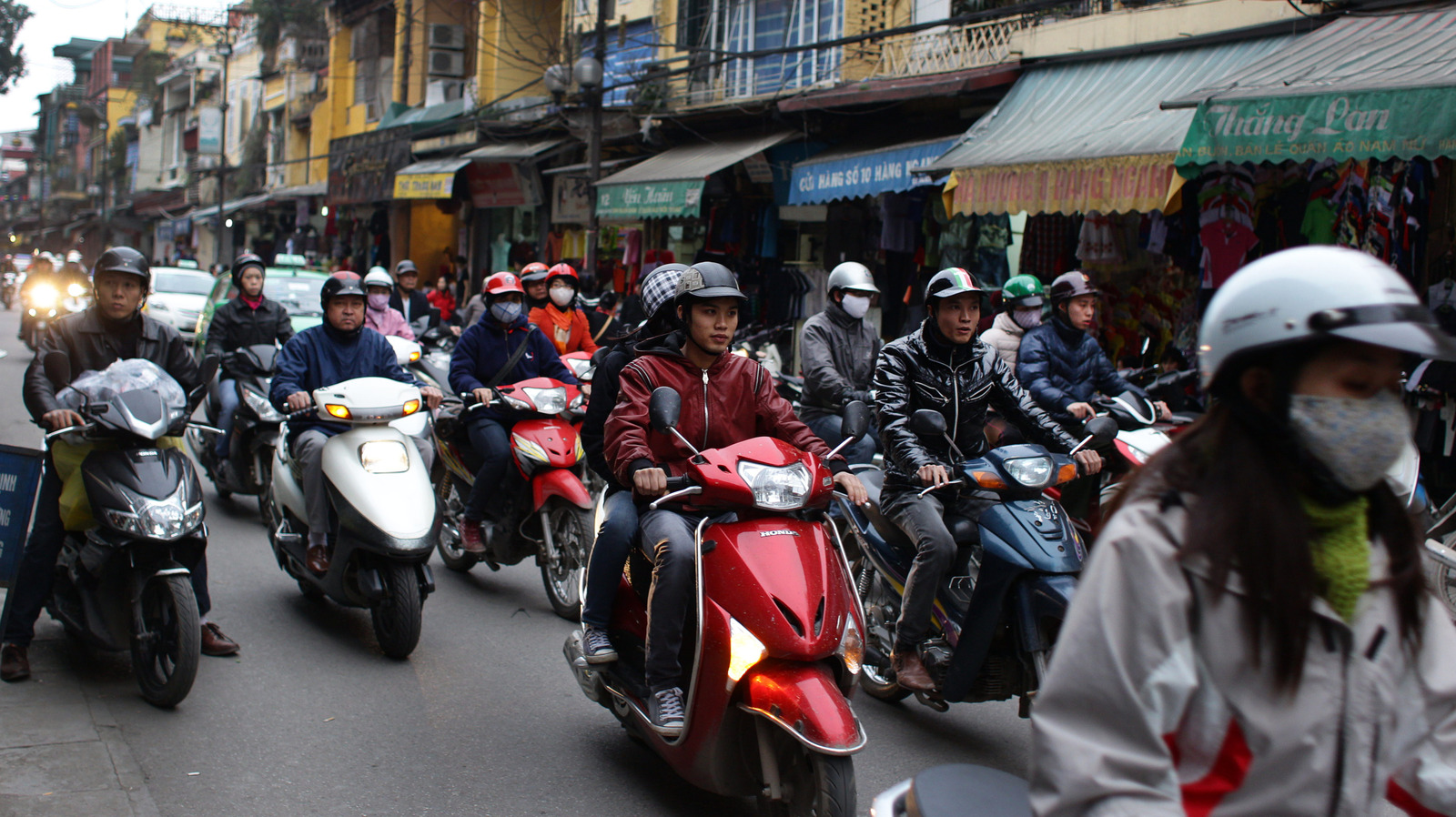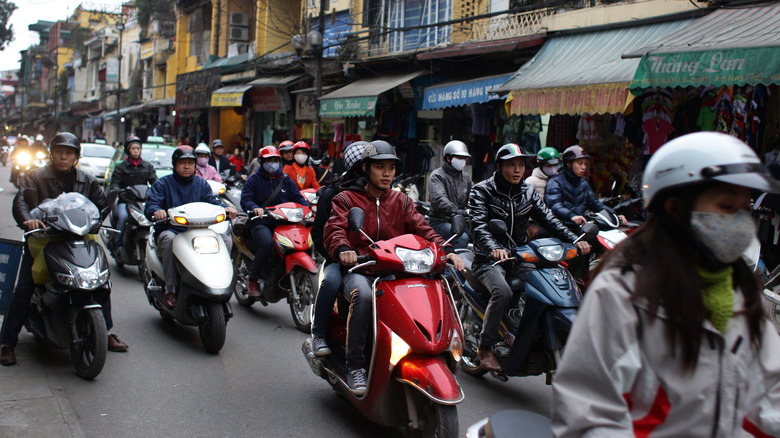Vietnam’s capital city has a serious pollution problem, and the government is serious about doing something about it. According to AP, motorcycles and scooters with internal combustion engines will be banned from the inner city in less than a year, with further and wider bans to follow.
While bikes are typically considered pleasure vehicles here (and they are fun), motorcycles and scooters are the family cars of Vietnamese cities. Hanoi alone has almost seven million bikes, compared to about one million cars. You’ll often see entire families aboard a small scooter. Anyone who’s seen the “Top Gear” Vietnam special probably remembers the chaos and mayhem of little bikes absolutely everywhere with little regard for anything resembling traffic laws. (Of course, Jeremy Clarkson still failed the license test.)
All those small engines generate a lot of smog, which has led to some of the worst air quality in the world at times, as well as poor water quality. Vietnam Net reports that the Hanoi People’s Council first approved a plan to phase out gas engines in the city center in 2017, but it has taken almost a decade to put this plan into practice. Now that it’s happening quite rapidly, residents are supportive, but also concerned about whether adequate alternative transportation will be available in time for the ban to begin.
Too much, too soon?
As of July 1, 2026, motorcycles and scooters with internal combustion engines will be banned from Hanoi’s Ring Road 1 and the old quarter area inside of it. The government will allocate funding to improve public transportation and to subsidize the cost of switching to electric bikes, which are still permitted. Improving the EV charging infrastructure is a priority as well, including adding public chargers to parking lots and residential buildings. Many have expressed concern about whether the electrical systems in older apartment buildings can handle the additional load of charging up scooters, as well as whether all this can be done in less than a year before the ban begins. However, residents remain generally in favor of it, recognizing the need to breathe clean air.
This is just the first phase of vehicle restrictions. Vietnam Net says that as of January 1, 2028, the ban will extend to include fossil-fueled cars and expand to include the entire area inside Ring Road 2. Sometime in 2030, combustion vehicles within Ring Road 3 will be banned, though an exact date for this has not yet been set. Hanoi also has big plans to clean up the water supply and keep it that way, as well as ban single-use plastic in businesses within Ring Road 1, which will also expand in the future.
Hanoi’s progress will be interesting to watch over the next few years. Their scooter culture is as ingrained as our car culture, and such a rapid upheaval may show us what would happen here if we actually stuck to EV mandates instead abandoning them.




